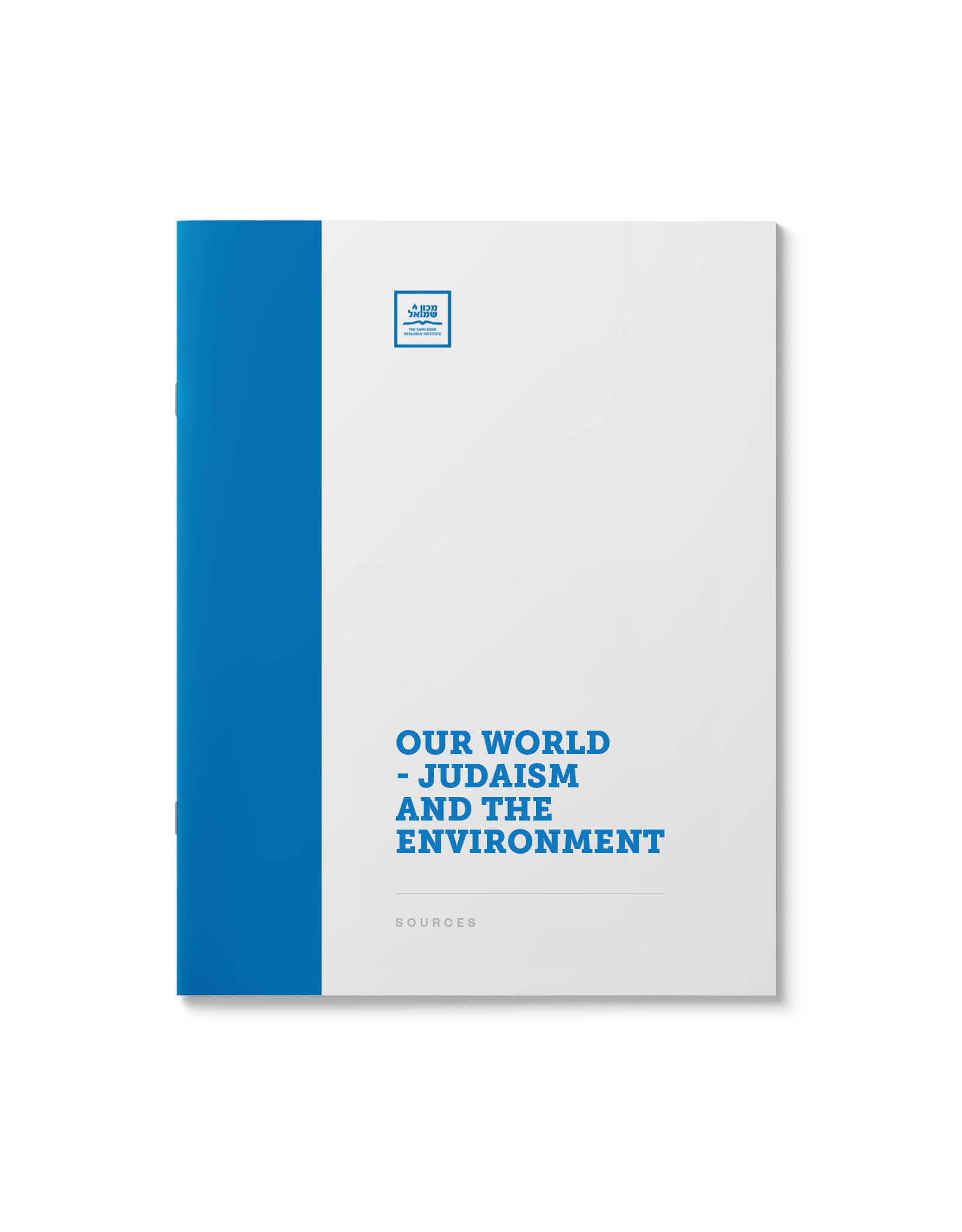Our World – Judaism and the Environment (Sources)
$75.00
How would you rate your concern for the environment?
Are there Torah perspectives about respect for nature, plant life, wastefullness and the like that you should be aware of?
The following collections feature sources exploring each of the following Mitzvos, as well as insights into how these laws inform our personal lives:
A. Ba’al Tashchis – (17 pages)Table of Contents Request this paper
B. Shmittah – (50 pages)Table of Contents Request this paper
C. Cutting Fruit Trees – (44 pages)Table of Contents Request this paper
D. Orlah – (16 pages)Table of Contents Request this paper
E. Tza’ar Balei Chaim – (47 pages)Table of Contents Request this paper
F. Kilayim – (25 pages)Table of Contents Request this paper
| Language | English |
|---|---|
| Paper Type | Research Paper |
Related Products
Why is eating so important to Jewish people? Is there something holy about it? A comprehensive survey of the role that food and eating plays in Jewish life.
A look at the halachic status of those with mental and physical disabilities, such as autism and deaf-muteness.
The Rambam is famous for suggesting that the unique status of the tribe of Levi can be shared by all those who devote their lives to Torah study while relying on others for their livelihood.
Many have sought to reconcile this lifestyle with various rulings of the Talmud and Shulchan Aruch, as well positions of Rambam elsewhere. What are the arguments for and against?
Does smoking violate our responsibility to protect our bodies? What about drinking alcohol? Do drugs fall into the same category? This paper examines the parameters of shmiras haguf and extracts the principles that inform halacha’s approach to the various ways of harming oneself.
What do Torah sources require in maintaining a high standard of cleanliness, particularly with regard to food preparation?
(Hebrew)
What does the Torah stand on narcotics and other illegal substances? Would halacha demand that government intervene and regulate its citizens’ drug use? Or perhaps it is better to legalize such things, allowing addicts to escape a life of crime and perhaps start on the path to recovery?
הדרת פנים זקן. סקירה כוללת ומקיפה על יסוד איסור השחתת הזקן, השיטות והטעמים בזה.
As a complex, strategic game known to improve memory and cognitive abilities, the Jewish attitude to Chess is an intriguing one. Were Torah scholars in favor of this pastime? Are there halachic issues to be aware when playing this game?
In recent decades, thousands of Jews have gravitated to the East in pursuit of spiritual enlightenment. More recently, several Eastern Practices have been secularized, popularized, and repackaged as physical and meditative exercises. Does this make them kosher? Which practices are problematic and should be avoided? And what was the Rebbe’s response to the popularization of Yoga and Transcendental Meditation back in the ’70s?
(67 pages)
Submitted by a Shliach in New York
A Yeshiva is the mainstay of the Jewish community. The Rebbe would often encourage people to support Yeshivos in a myriad of ways, be it by encouraging enrollment, assisting with financial support, and the like. This features a collection of the Rebbe’s talks on the importance of supporting Yeshivos.
What is the purpose of dreams? Are their messages real? Is a dream about a Tzaddik to be considered fact or fantasy?
(Includes 88 pages of supplementary material)
Many natural substances have psychoactive (mind-altering) properties that can significantly impact one’s mental state and affect one’s mood.
May an observant Jew avail himself of such stimulants? Is such recreation acceptable from a halachic standpoint, or does it contravene one’s Torah obligations? How would we judge actions taken while under the influence of drugs and alcohol?
See also: “The Drugs Debate” on the appropriate legislative attitude towards controlling the proliferation of potentially harmful substances.
Table of Contents















